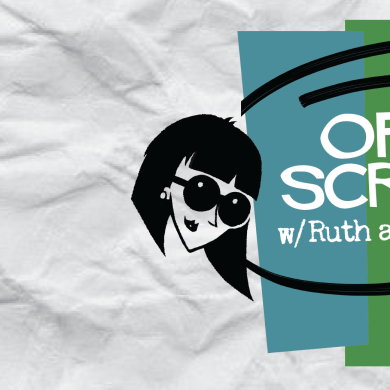In early March, before COVID-19 changed the world, VICE published an irresponsible piece of “journalism” headlined “Gen Z Is Leading a New Wave of Internet Piracy”. Now that we’ve settled into our quarantine routine, we want to talk about how bad it is.
VICE’s piece, written by Canadian “author” Sarah Hagi, is something rare. This may be the first time we’ve seen a major, widely read journalistic outlet not only give a platform to unapologetic criminality, but actually encourage their readers to embrace it.
Hagi begins her piece by waxing nostalgic about the good old days of download piracy. “I’ll never forget the first time I realized downloading movies was a thing that was possible,” she sighs. “As a teen, nobody really knew the actual laws around piracy in Canada, but it was common knowledge that it was fine to leech as long as you weren’t the one distributing the content… In any case, I never got caught or felt remotely guilty even if it was technically stealing.”
As an adult, Hagi says, her tune hasn’t changed (she still feels blessedly guilt-free about stealing works made and owned by others) – but the world, by her estimation, has. “Millennials my age,” she laments, “seemed to have forgotten how to pirate and stream without subscriptions… I wondered: have Gen Z, who’ve grown up in the age of Netflix long removed from piracy’s heyday, given up on piracy, too?”
The good news for Hagi is that a lot of her peers still remember how to rip off creatives just like she does. And we do mean a lot.
Last year, the U.S. Chamber of Commerce reported that the film and television industry – an industry that supports 2.6 million jobs in the United States – loses at least $29.2 billion to piracy every year. One recent study by the piracy-tracking firm MUSO showed nearly 78 billion visits to piracy streaming sites over a one-year period. And streaming piracy, not surprisingly, now accounts for 80% of all piracy, according to MUSO.
So, Hagi can rest assured. Thanks to Google Search and sites like Reddit, it has never been easier to find sources of illegal content and watch it for free.
Now that we’ve made her feel better, let’s move on to the part of the article where she tries to make her millennial readers feel better, too… about pirating.
“The younger generation is disillusioned by feeling guilt towards ‘stealing’ from huge media giants,” Hagi writes, for some reason putting scare quotes around a word that has no ulterior meaning (stealing is stealing – whether it’s cars, content, or anything else). “But… why should access to streaming platforms and having the money to pay for them determine who should consume art?”
Let’s take a moment to reflect on the fact that these are the words of an “author” who, believe it or not, has written for the likes of The New Yorker and GQ – magazines that survive, and are able to hire people like Hagi, based on subscriptions and sales. Why should “having the money to pay” for these magazines “determine who should consume” her articles? Let’s test Hagi’s proposition and see whether she still gets paid.
Now back to the article, as Hagi proceeds to argue that content comes only from big corporations, and that they don’t pay enough taxes, so why should you feel guilty?
“Consumers shouldn’t be held to a higher standard than companies worth hundreds of billions of dollars,” she says, seeming to believe that if you don’t think someone pays enough taxes, it’s okay to go in and steal their stuff. Guess it’s cool to march into Apple and rip off some iPhones then, right? Same thing.
But hey, before we get too wound up, Hagi does feel for the little guy. She writes, “I would never pirate or stream a truly independent project that needs the money.
Well, first of all, lots of pirates don’t draw the same (misinformed) lines Hagi does. Filmmakers large and small are hurt by piracy. But companies like Netflix and Amazon, and some of the large studios, make it possible for a lot of independent projects to reach the screen, and stealing those projects means less dollars get paid to independent filmmakers.
Moreover, making big films involves a veritable village of hundreds, if not thousands, of hard-working people, from carpenters and electricians to drivers, costume designers, camera operators, and many, many more.
When piracy diminishes the returns on films and TV shows, whether from a large company or a small independent, jobs suffer. In fact, the U.S. Chamber concludes that between 230,000 and 560,000 jobs are lost to piracy every year.
“It would be easy to equate not feeling guilty to not caring about supporting artists,” Hagi concludes, heedless of everything we just said, “but like me, plenty of the people I spoke with have their own set of rules when it comes to piracy and supporting artists.”
She proceeds to give examples from “real-world” young people rationalizing piracy. As one of them puts it, they “support shows and movies… in other ways.” Naturally, she offers no clue as to what those “other ways” are, mainly because they are BS. Isn’t the very best “way” to support creativity, other than recommending it, to pay for it? And we’re absolutely certain there is no worse way than to steal it.
Actually, wait – there is a worse way: An ill-informed “author” condones stealing, writes an article that encourages others to steal, and then is published by a major American media company that reaches hundreds of millions of users.
Hagi may not know any better, but her publisher, VICE, should know better. VICE basks in its reputation for provocation and irreverence, but when they create a platform to advocate for criminality, that’s not provocative or irreverent. That’s just simply immoral.
It’s especially difficult to condone VICE’s blindness at this moment in our history. Since VICE published this piece in early March, the world has changed dramatically. Thousands and thousands of people in the film and television industry cannot go to work creating new content. They are left to collect unemployment, wait in line at food banks, or go entirely without help. And as the rest of us are quarantined, we turn more than ever to movies and television shows to ease our long wait and keep us entertained.
Hagi may argue that she and some of her peers “support shows and movies… in other ways.” But today, more than ever, the people who create those “shows and movies” would really appreciate the chance to earn something for all the hard work they put into them. C’mon, Sarah, grow up. Now that you’re an adult and an “author,” how about rethinking those childish attitudes? And, while you’re it, how about using your platform to help Gen Z grow up, too?
Editor’s note: On April 27, less than two months after Sarah Hagi’s article posted, VICE published a new piece, written by one Karl Bode and headlined, “Movie and TV Piracy Sees an ‘Unprecedented’ Spike During Quarantine”. We imagine Hagi read it with relief, gratitude, and maybe just a bit of pride for playing some small part.



